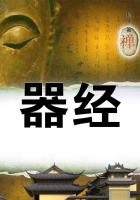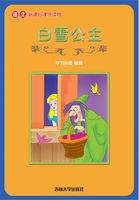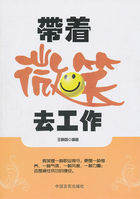(5) There are many ways in which we may approach this study. The simplest of all is to observe our own use of language in conversation or in writing, how we put words together, how we construct and connect sentences, what are the rules of accent and rhythm in verse or prose, the formation and composition of words, the laws of euphony and sound, the affinities of letters, the mistakes to which we are ourselves most liable of spelling or pronunciation. We may compare with our own language some other, even when we have only a slight knowledge of it, such as French or German. Even a little Latin will enable us to appreciate the grand difference between ancient and modern European languages. In the child learning to speak we may note the inherent strength of language, which like 'a mountain river' is always forcing its way out. We may witness the delight in imitation and repetition, and some of the laws by which sounds pass into one another. We may learn something also from the falterings of old age, the searching for words, and the confusion of them with one another, the forgetfulness of proper names (more commonly than of other words because they are more isolated), aphasia, and the like. There are philological lessons also to be gathered from nicknames, from provincialisms, from the slang of great cities, from the argot of Paris (that language of suffering and crime, so pathetically described by Victor Hugo), from the imperfect articulation of the deaf and dumb, from the jabbering of animals, from the analysis of sounds in relation to the organs of speech. The phonograph affords a visible evidence of the nature and divisions of sound; we may be truly said to know what we can manufacture. Artificial languages, such as that of Bishop Wilkins, are chiefly useful in showing what language is not. The study of any foreign language may be made also a study of Comparative Philology. There are several points, such as the nature of irregular verbs, of indeclinable parts of speech, the influence of euphony, the decay or loss of inflections, the elements of syntax, which may be examined as well in the history of our own language as of any other. A few well-selected questions may lead the student at once into the heart of the mystery: such as, Why are the pronouns and the verb of existence generally more irregular than any other parts of speech? Why is the number of words so small in which the sound is an echo of the sense? Why does the meaning of words depart so widely from their etymology? Why do substantives often differ in meaning from the verbs to which they are related, adverbs from adjectives? Why do words differing in origin coalesce in the same sound though retaining their differences of meaning? Why are some verbs impersonal? Why are there only so many parts of speech, and on what principle are they divided? These are a few crucial questions which give us an insight from different points of view into the true nature of language.
(6) Thus far we have been endeavouring to strip off from language the false appearances in which grammar and philology, or the love of system generally, have clothed it. We have also sought to indicate the sources of our knowledge of it and the spirit in which we should approach it, we may now proceed to consider some of the principles or natural laws which have created or modified it. i. The first and simplest of all the principles of language, common also to the animals, is imitation. The lion roars, the wolf howls in the solitude of the forest: they are answered by similar cries heard from a distance. The bird, too, mimics the voice of man and makes answer to him.
Man tells to man the secret place in which he is hiding himself; he remembers and repeats the sound which he has heard. The love of imitation becomes a passion and an instinct to him. Primitive men learnt to speak from one another, like a child from its mother or nurse. They learnt of course a rudimentary, half-articulate language, the cry or song or speech which was the expression of what we now call human thoughts and feelings.
We may still remark how much greater and more natural the exercise of the power is in the use of language than in any other process or action of the human mind. ii. Imitation provided the first material of language: but it was 'without form and void.' During how many years or hundreds or thousands of years the imitative or half-articulate stage continued there is no possibility of determining. But we may reasonably conjecture that there was a time when the vocal utterance of man was intermediate between what we now call language and the cry of a bird or animal. Speech before language was a rudis indigestaque materies, not yet distributed into words and sentences, in which the cry of fear or joy mingled with more definite sounds recognized by custom as the expressions of things or events. It was the principle of analogy which introduced into this 'indigesta moles' order and measure. It was Anaxagoras' omou panta chremata, eita nous elthon diekosmese: the light of reason lighted up all things and at once began to arrange them. In every sentence, in every word and every termination of a word, this power of forming relations to one another was contained. There was a proportion of sound to sound, of meaning to meaning, of meaning to sound. The cases and numbers of nouns, the persons, tenses, numbers of verbs, were generally on the same or nearly the same pattern and had the same meaning. The sounds by which they were expressed were rough-hewn at first; after a while they grew more refined--the natural laws of euphony began to affect them. The rules of syntax are likewise based upon analogy.















